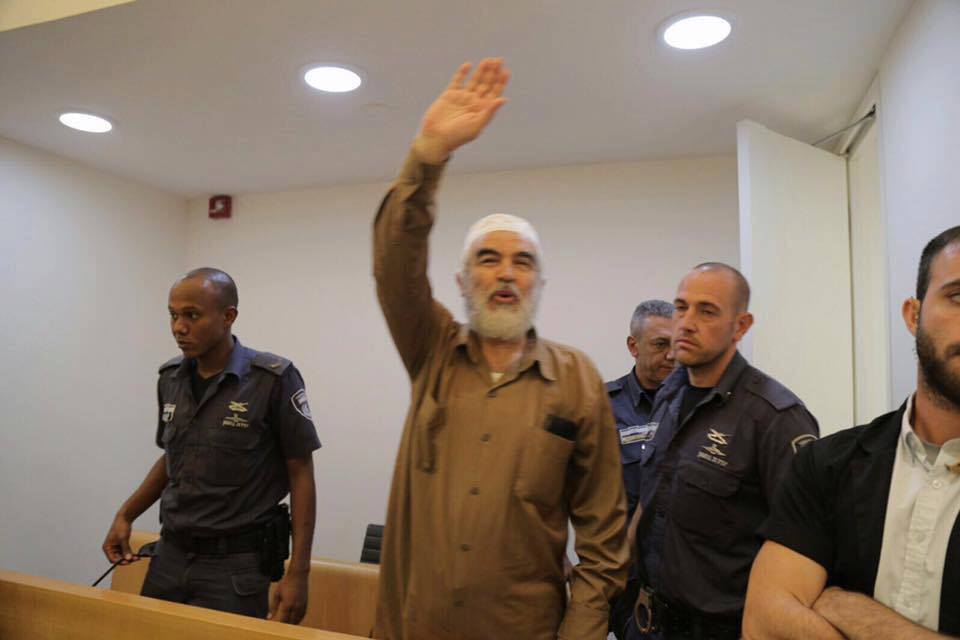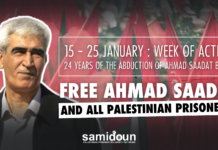
The Israeli Magistrate’s Court in Haifa ordered Sheikh Raed Salah, prominent activist on Al-Aqsa Mosque and leader of the Islamic Movement, imprisoned until the end of proceedings in his case on Wednesday, 6 September. Salah is charged with “incitement” for his public speeches about Al-Aqsa Mosque.
Inside the courtroom, Salah denounced his conditions of detention, saying that he was being held in an extremely small room that he described as a “toilet.”
Sheikh Salah is one of the most prominent leaders of the Palestinian movement in occupied Palestine ’48; he is now being charged for public speeches given about Al-Aqsa Mosque and at the funerals of three young men from Umm al-Fahm who carried out an armed operation targeting occupation forces.
He has been imprisoned since 17 August and has been subject to a systematic official campaign of incitement, note his lawyers, including a threat by minister Yisroel Katz to deport him.
Despite the highly public and political nature of the case, the judge banned filming in the court in Salah’s case, stating that “the case does not concern the public.” Salah has been arrested on multiple occasions and was released in January 2017 after being imprisoned for nine months on charges relating to a sermon he delivered in Jerusalem in 2007; he spent most of his imprisonment held in solitary confinement and was threatened with extended sentencing before release. Israeli occupation officials have also been involved in attempts, including in the United Kingdom, to deny Salah an international platform for advocacy. He has been subjected to repeated travel bans by the Israeli state. He has also been repeatedly barred from entering Jerusalem itself.
His detention has been repeatedly extended since he was seized by Israeli forces on 15 August who invaded his home in Umm al-Fahm. “The judicial grounds for this case are trivial. In reality, this trial is only about Sheikh Raed’s defense of Al-Aqsa Mosque and the slogan, Al-Aqsa is in danger,” said his lawyer Khaled Zabarqa.
Salah is the leader of the Islamic Movement in Palestine ’48; in 2015, the Israeli state banned the Islamic Movement in an action condemned by Palestinian organizations across the political spectrum as an attack on all Palestinians in ’48 Palestine, who hold Israeli citizenship.
Discover more from Samidoun: Palestinian Prisoner Solidarity Network
Subscribe to get the latest posts sent to your email.




